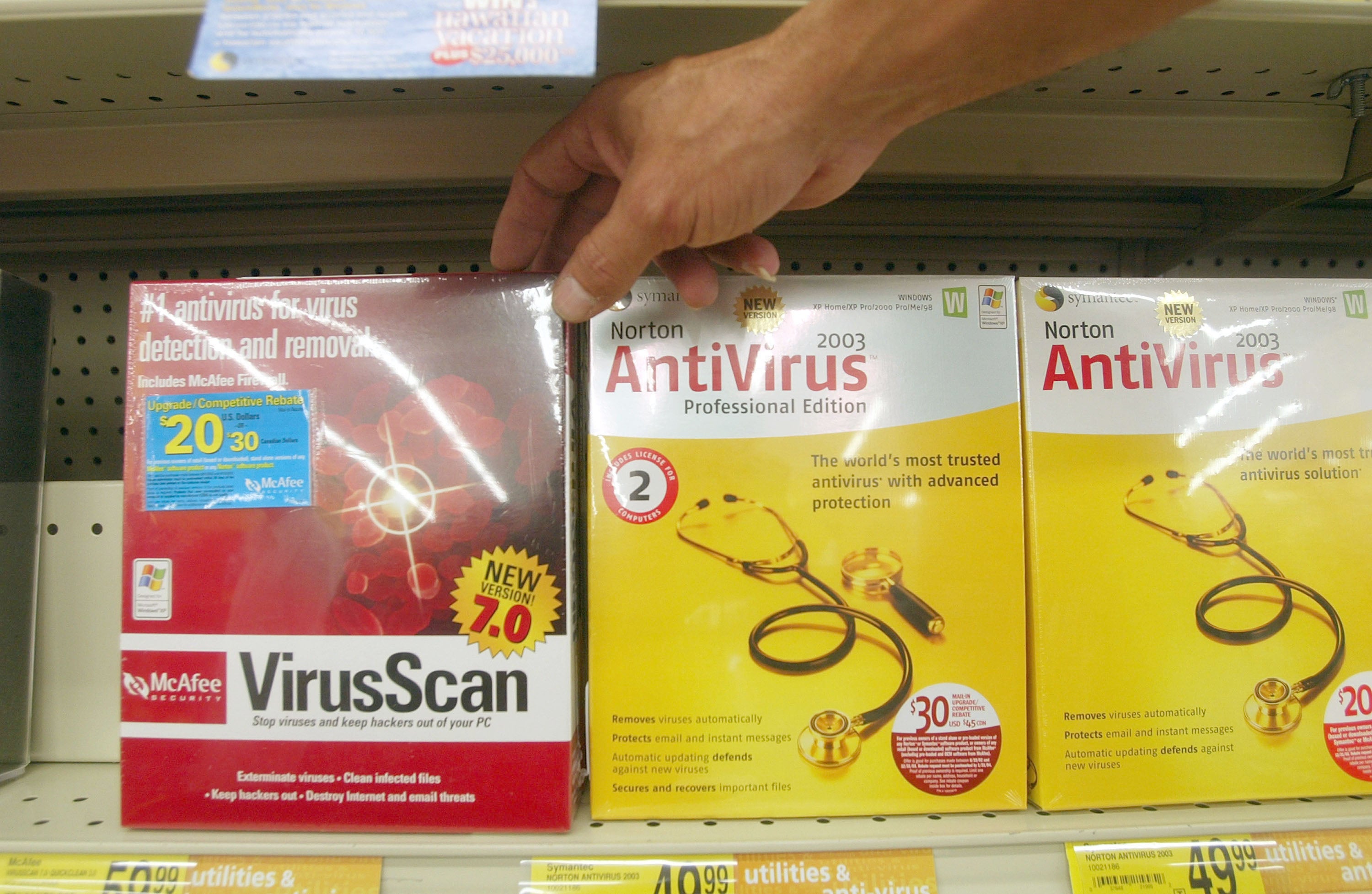'Antivirus is dead' says maker of Norton software suite

Your support helps us to tell the story
From reproductive rights to climate change to Big Tech, The Independent is on the ground when the story is developing. Whether it's investigating the financials of Elon Musk's pro-Trump PAC or producing our latest documentary, 'The A Word', which shines a light on the American women fighting for reproductive rights, we know how important it is to parse out the facts from the messaging.
At such a critical moment in US history, we need reporters on the ground. Your donation allows us to keep sending journalists to speak to both sides of the story.
The Independent is trusted by Americans across the entire political spectrum. And unlike many other quality news outlets, we choose not to lock Americans out of our reporting and analysis with paywalls. We believe quality journalism should be available to everyone, paid for by those who can afford it.
Your support makes all the difference.Symantec, maker of the widely used Norton Antivirus software suite, has declared that antivirus technology “is dead”.
The company’s senior vice president of information security Brian Dye told the Wall Street Journal that hackers were not only finding new ways to break into computers but that antivirus wasn’t “a moneymaker in any way."
Mr. Dye said that the company’s antivirus software catches just 45 per cent of cyberattacks – an admission that sounds surprising but that reflects a broader shift in the cybersecurity industry as experts are forced to adapt to new methods employed by hackers.
When Symantec’s antivirus software was first introduced in the late 1980s it worked as an immune system for computers, with experts maintaining a database of malicious code and blocking any attacks on a given system.
Categories of cyberattacks have since multiplied and now include everything from malware (Trojan-horse like programs that open backdoors in systems) and spyware (software that monitors a users’ keyboard to record passwords) to more sophisticated breaches aimed at large businesses.
Symantec has said that it was now looking to move from a "protect" model to one of "detect and respond,” offering businesses bespoke packages that track hacks and leaks to prevent any damages beyond the initial infiltration.
Mr Dye also stressed that despite the growing redundancy of antivirus products, security packages for consumers still offer a range of useful services including blocking spam, managing passwords, and even scanning users' Facebook feeds for malicious links.
Symantec, which has an 8 per cent global market share of the antivirus market and forecast a quarterly revenue of $1.62-1.66 billion in the months through March, will be following the lead of a number of smaller cybersecurity companies who are finding innovative methods to deal with new types of threats.
One company, Juniper Networks, has launched products that place “ghost armies” of fake data on systems in order to distract and misdirect hackers from important information like customer data and intellectual property.
Another firm called Mandiant, which was founded by an ex-US Air Force officer and purchased in December 2013 by FireEye for $1 billion, offers its own ‘emergency response’ services with the strapline “Security breaches are inevitable – being a headline is not."
Join our commenting forum
Join thought-provoking conversations, follow other Independent readers and see their replies
Comments